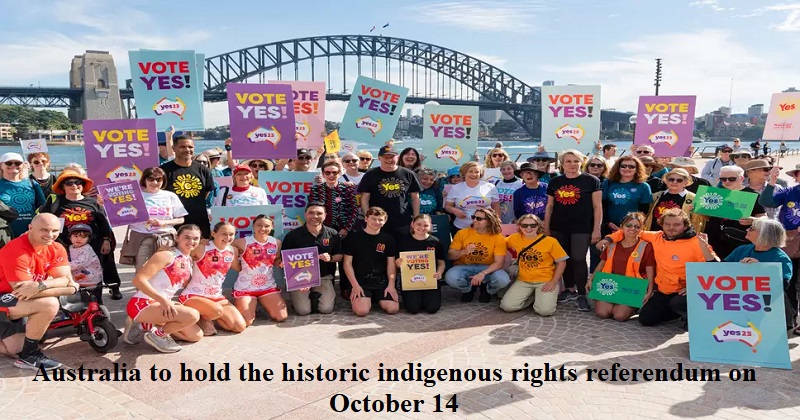
Australian Prime Minister Anthony Albanese announced on Wednesday (August 30) that the nation is gearing up for a historic indigenous rights referendum on October 14, signifying a pivotal moment in Australia’s relationship with its Aboriginal minority.
Albanese solidified the date for the binding vote, emphasizing its significance as a rare opportunity for all Australians to unite and enact positive change within the country.
He urged the public to vote in favor of the referendum, which, if approved, would mark the first instance of Indigenous Australians being acknowledged within the country’s constitution. Indigenous Australians, whose ancestors have inhabited the continent for over 60,000 years, would gain constitutional recognition.
Moreover, the Indigenous population would secure the constitutionally enshrined right to be consulted on legislation affecting their communities, often referred to as the “Voice to Parliament.”
However, polls indicate that the ‘yes’ campaign is trailing behind. The prospect of a failed referendum raises concerns about potential harm to inter-racial relations and Australia’s global reputation. It would also signify the loss of an exceptional opportunity to address pervasive inequality.
Despite their substantial presence in Australia, the Indigenous population, accounting for around 3.2 percent of the nearly 26 million inhabitants, faces socio-economic disparities that deviate from national averages.
The absence of mention of Aboriginal people in the constitution, despite their extensive history predating European colonization, has prompted calls for reform.
The Australian government has thrown its considerable support behind the success of the referendum, and it has garnered backing from major corporations and welfare organizations.
However, recent opinion polls show a decline in support for the referendum.
Advocates of the proposal argue that a ‘yes’ vote would facilitate reconciliation between the nation and its Aboriginal population, fostering greater unity.
In contrast, opponents contend that the move could breed division along racial lines and grant excessive power to the Indigenous community.
Australia’s constitution mandates that any constitutional reform necessitates a national referendum, a process challenging to achieve. For the referendum to pass, it must secure more than 50 percent of the nationwide vote and win the majority vote in at least four of the country’s six states.
Australia has previously witnessed 44 proposals for constitutional change and held 19 referendums, of which only eight have been successful.

Post Your Comments